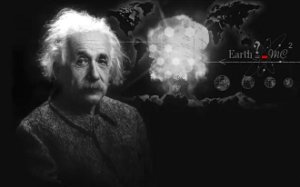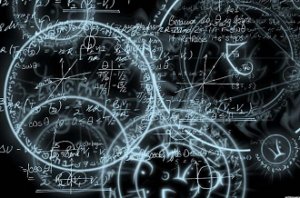
Arquivo para January, 2024
Physics and the mind of God
The basic original question of man is language, but when searching for information man was forced to look at the universe and try to understand its enigmas, geocentrism (the earth as the center of everything), heliocentrism (the sun as the center of everything) dominated human language and thought for millennia, throughout this time anthropocentrism dominated human conception and with this the attempt to dominate all of nature grew.
but when searching for information man was forced to look at the universe and try to understand its enigmas, geocentrism (the earth as the center of everything), heliocentrism (the sun as the center of everything) dominated human language and thought for millennia, throughout this time anthropocentrism dominated human conception and with this the attempt to dominate all of nature grew.
However, nature is indomitable, modernity was an attempt to dominate the forces of nature and assert anthropocentrism over it, but it has its own logic, and when looking more deeply the universe that had a mythological explanation moved to a more focused focus. clear of eschatological inquiry: where did we come from and where are we going.
The book by theoretical physicist Michio Kaku: “The God equation” takes a deep dive into this issue from contemporary physics and cosmology, the physicist is the great theorist of string physics (Hyperspace is one of his books), professor at Harvard and host of programs on Discovery Channel.
In his book he explains the quest of physicists such as Stephen Hawking and Albert Einstein to try to explain all the forces of the cosmos, what is called the theory of everything, and which in its current formulation is called the Standard Physics Theory, the discovery of quantum forces of particles, including the Higgs boson, the vision of the photon with a particle of zero mass, the particles of terrestrial magnetism helped this unification, but that’s not all.
Many physicists have failed, the quantum explanation breaks with the idea of “thing” that some dualist authors continue to have, the “quantum” is something beyond it has a third state, called in physics the “third included” where a particle is between the Being and Non-Being and is not dual.
If this state of quantum physics is already a reality, what the particles actually are is still a mystery, and the “most promising candidate (and, in my opinion, the only candidate) is string theory, which says that the universe it is not made of point particles, but rather of tiny vibrating strings, where each mode of vibration corresponds to a subatomic particle” (Kaku, 2022).
We would need a microscope powerful enough to see electrons, quarks, neutrinos, etc. they are nothing more than vibrations of tiny loops, similar to rubber bands. If we put these elastic bands to vibrate countless times and in different ways, we will eventually be able to create all the subatomic particles in the universe, and this means that the laws of physics are summarized in these modes of vibration of the small strings.
Kaku says in the introduction to his book: “chemistry is a set of melodies that we can play with them. The universe is a symphony. The mind of God, which Einstein eloquently referred to, is a cosmic music that spreads across space-time” (Kaku, 2022).
Kaku, Michio. 2022. A equação de Deus (The God equation). Trans. Alexandre Cherman, Brazil, R.J.: ed. Record, 2022.
From information to narration
The title is purposefully the opposite of the first chapter of Byung Chul Han’s book on the crisis of narration, although he quotes Walter Benjamin who cites the experience of narration in a period before the internet, but the Korean-German philosopher does not clearly see this previous crisis the internet, and thus he himself falls into what he condemns, the absence of analysis in time.
chapter of Byung Chul Han’s book on the crisis of narration, although he quotes Walter Benjamin who cites the experience of narration in a period before the internet, but the Korean-German philosopher does not clearly see this previous crisis the internet, and thus he himself falls into what he condemns, the absence of analysis in time.
If it is true that the Internet and its tool for making information available to laypeople, which is the Web (born in the 90s, more than 20 years after the internet) not only created a profusion of means of disseminating information and its narratives, but also created the possibility of its profusion in audio and video, which gives rise to a new possibility of recorded narration for podcasts and videos.
Of course, this does not mean that that primitive narrative prior to writing and the press, typical of primary orality, has returned, it exists in original cultures and also in some Western cultures and beliefs, for example, among the Kurds there are the “çîrokbê” who, if it were Literally translated, it would be what we understand in Western culture as “history”.
Byung Chul Han’s sentence about the digital universe is clear: “Digitalization deobjectifies and disembodies the world. It also eliminates memories” (Han, 2022) this is partly true, but digital media itself, once recorded, becomes a thing, and once a narration is made, just for example, by Kurdish narrators, the information (in the sense of Chul Han) returns to narration, that is, the reverse process is possible.
Its error, from a philosophical point of view, is an old question about what things are (or what they are), the relationship between subject and object is the result of Western dualism since Parmenides, and only a non-dual vision can understand that the A thing is also not a thing in itself, once narrated.
Thus, information will always be paradoxical, it is narrated when it is and not narrated after it has become narrated-information and is subject to historical distance, but if seen from the point of view of quantum physics it is even more complex, because there are both things, from which the question arises from some physicists that time does not exist, difficult for today’s culture.
This question of time arose in 2012 in a TedTalk by the Italian Carlo Roveli: “Time Doesn’t Exist and I’ll Tell You That in 15 Minutes”, but has gained popularity now because the James Webb mega-telescope proposes several new paradigms when looking deeper into the universe, We are at the end of the Copernican era, the center of our galaxy is a black hole and they have already started to say what they are, dark matter and dark energy are also beginning to be revealed.
The theoretical physicist Michio Kaku gives the history of this idea, “In The God Equation” (ed. Record, 224 pp, trans.: Alexandre Cherman), and there he gives a written account of today’s physics.
Han, Byung-Chul (2022). Não-coisas : reviravoltas do mundo da vida / Byung-Chul Han ; tradução de Rafael Rodrigues Garcia. – Petrópolis, RJ : Vozes, Brazil.

